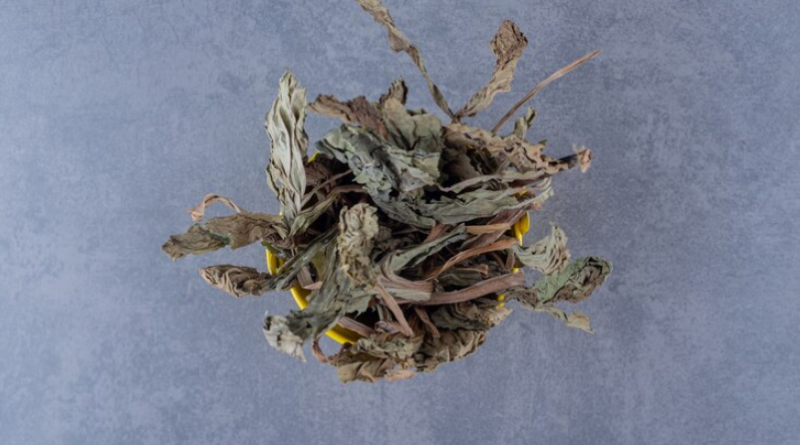The Cultural Significance of Ashwagandha in Pakistan’s Wellness Practices
In recent years, there has been a growing interest in natural and holistic wellness practices across the world, and Pakistan is no exception. As more people look to improve their health through organic means, ancient herbs like ashwagandha have gained popularity. This powerful herb, traditionally used in Ayurvedic medicine, holds a special place in the wellness culture of Pakistan, where traditional herbal remedies are deeply rooted in the history of healing. But what exactly makes ashwagandha so significant in the context of Pakistan’s wellness practices? Let’s explore its cultural significance and how it’s being embraced in modern wellness routines.
What is Ashwagandha?
Ashwagandha, also known as Withania somnifera, is an adaptogenic herb that has been used for thousands of years in Ayurvedic medicine. It’s known for its ability to help the body adapt to stress, balance hormones, and promote overall well-being. The name “ashwagandha” translates to “smell of the horse” in Sanskrit, symbolizing strength and vitality. The herb is considered a powerful tonic for both the body and mind, offering benefits such as stress reduction, improved energy levels, better sleep, and enhanced mental clarity.
While it originates from India, ashwagandha has spread across the subcontinent, including Pakistan, where it is now a popular addition to wellness practices.
Traditional Healing Practices in Pakistan
In Pakistan, traditional healing practices have always held cultural significance, especially in rural areas and among communities that rely on natural remedies. The use of herbs, spices, and plant-based medicines has been passed down through generations. These remedies are often incorporated into daily routines for promoting good health, addressing minor ailments, and maintaining balance.
Pakistan’s cultural connection to herbal medicine can be traced back to ancient civilizations, such as the Indus Valley, which had a deep understanding of natural healing. The influence of both Persian and Ayurvedic medicine in the region further enriched the country’s traditional practices. Herbs like turmeric, ginger, and ashwagandha have long been revered for their therapeutic properties.
Today, many people in Pakistan still turn to these natural solutions for health and wellness, and ashwagandha has gained significant popularity as a key element of modern holistic practices.
Ashwagandha’s Role in Pakistani Wellness Culture
In Pakistan, wellness is often seen as a holistic concept that encompasses the physical, mental, and spiritual aspects of health. Ashwagandha fits perfectly into this holistic approach, offering a wide range of benefits for both the body and the mind. Here are some of the key ways ashwagandha is integrated into Pakistani wellness practices:
1. Stress Relief and Mental Clarity
Stress has become a significant concern in today’s fast-paced world, and Pakistan is no different. With the challenges of modern life, work pressures, and family responsibilities, many people are seeking ways to manage stress and improve mental health. Ashwagandha is widely used in Pakistan to reduce stress and anxiety. As an adaptogen, it helps the body cope with stress and regulate cortisol levels, the hormone responsible for stress. Many Pakistanis incorporate ashwagandha into their daily routine to promote calmness and mental clarity.
In urban areas, where the demands of work and life can be overwhelming, ashwagandha is often taken in the form of capsules or powders mixed into smoothies, teas, or milk. It’s commonly used before bed to improve sleep quality and reduce anxiety, making it a go-to solution for those dealing with insomnia or stress-related sleep disturbances.
2. Holistic Healing in Traditional Practices
In rural Pakistan, ashwagandha is sometimes included in traditional healing practices and folk medicine. Local healers, often referred to as hakims (traditional herbalists), have used ashwagandha for centuries to treat various ailments. Whether it’s for boosting energy, improving digestion, or enhancing fertility, ashwagandha in Pakistan has been considered a multi-purpose herb in these communities.
Moreover, ashwagandha is often combined with other herbs like turmeric, ginger, or honey to create potent healing concoctions. These combinations are seen as a way to strengthen the body, rejuvenate the mind, and maintain balance, which aligns with Pakistan’s deep cultural respect for nature-based medicine.
3. Ayurvedic Influence in Urban Wellness
As Pakistan becomes more connected to global wellness trends, the influence of Ayurvedic practices has reached urban centers like Karachi, Lahore, and Islamabad. In these cities, wellness retreats, yoga centers, and organic health stores have emerged, many of which offer ashwagandha as part of their health products. This has brought the herb into the mainstream for a younger, health-conscious audience seeking natural solutions for mental clarity, hormonal balance, and physical endurance.
In these spaces, ashwagandha is not just a remedy but also a lifestyle choice for those looking to embrace holistic well-being. Whether used in smoothies, teas, or dietary supplements, ashwagandha’s versatility makes it a valuable addition to a balanced lifestyle.
4. Role in Women’s Health
Ashwagandha has gained significant attention in Pakistan, particularly among women, for its potential to support hormonal health. Many women use ashwagandha to alleviate stress, regulate menstrual cycles, and improve fertility. It’s also believed to help women manage the symptoms of menopause, such as hot flashes and mood swings.
Given the cultural significance of maintaining family health and well-being, herbs like ashwagandha are often recommended by traditional healers for women facing hormonal imbalances. In modern wellness practices, ashwagandha is increasingly used as a natural alternative to pharmaceutical treatments for anxiety, sleep disorders, and fatigue.
5. The Rise of Herbal Supplements
With the rise of interest in natural health, the demand for herbal supplements, including ashwagandha, is growing across Pakistan. Many local brands now offer ashwagandha in various forms, such as powder, capsules, and tinctures. These products are marketed as solutions for everything from boosting immunity to enhancing athletic performance, offering a modern twist on traditional healing methods.
Moreover, online platforms and social media have made it easier for people in Pakistan to learn about the benefits of ashwagandha and other herbs, leading to a surge in online sales and increasing accessibility to these natural remedies.
Ashwagandha in Daily Wellness Routines
As people in Pakistan seek to embrace a more holistic approach to health, ashwagandha has found its way into daily wellness routines. Whether it’s taken in the morning to boost energy, mixed into a nighttime drink for better sleep, or used as part of a recovery routine after a workout, ashwagandha is becoming a staple in many households.
Some people even use ashwagandha as part of their beauty rituals, believing it helps improve skin health by reducing inflammation and promoting better circulation. In a country where beauty and wellness are closely tied to tradition, ashwagandha’s multifunctional benefits make it a popular choice for those looking to maintain both internal and external health.
Conclusion: A Bridge Between Tradition and Modern Wellness
Ashwagandha’s growing popularity in Pakistan reflects the country’s deep-rooted respect for natural healing practices while embracing modern wellness trends. The herb’s ability to reduce stress, support hormonal balance, boost energy, and enhance mental clarity makes it an invaluable addition to the wellness routines of many Pakistanis.



